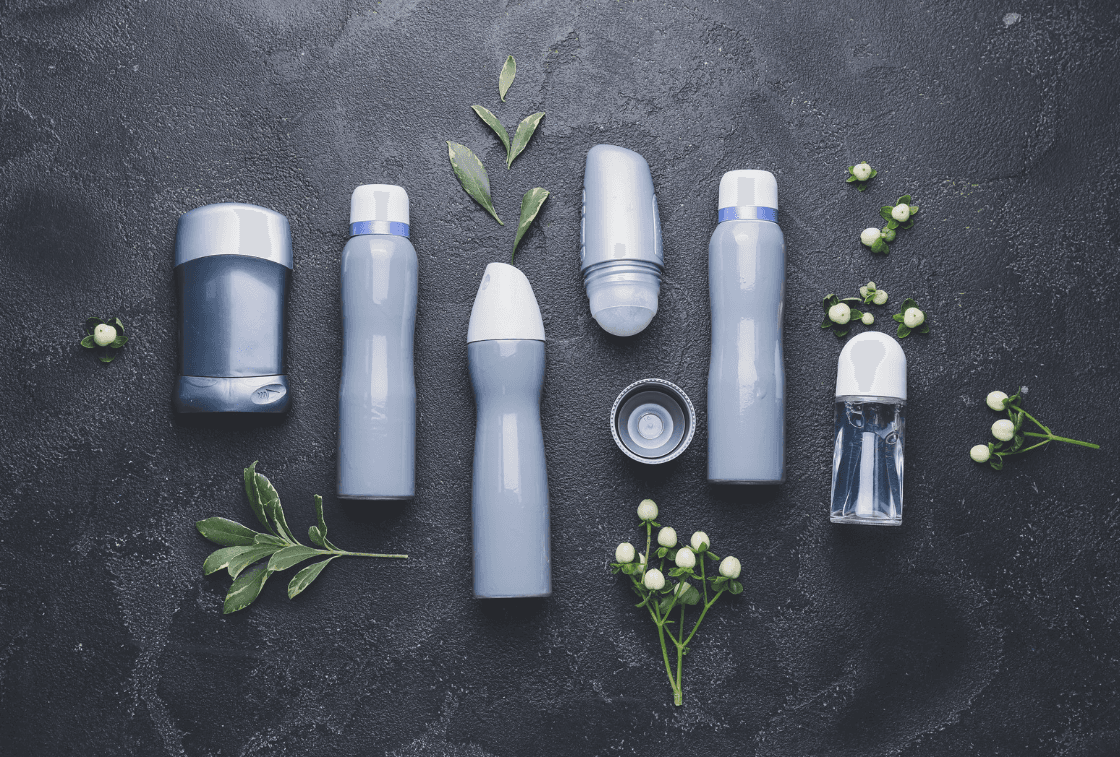We’ve all been there—some deodorants and antiperspirants just don’t cut it when it comes to controlling odor and sweat. For people with hyperhidrosis, a medical condition characterized by excessive sweating, choosing the right deodorant or antiperspirant is even more critical to navigating daily life. Hyperhidrosis can affect the underarms, palms, soles of the feet, face, and scalp, or the entire body. But wherever you struggle with excessive sweating, using the right product can significantly improve your comfort and boost your confidence. Keep reading to learn more about how to choose the best deodorant and best antiperspirant for hyperhidrosis, from clinical-strength formulas to natural options, and how to use them effectively.
The Best Deodorant for Hyperhidrosis: Our Top 10 Picks
Discover the best deodorants for hyperhidrosis, including clinical-strength options, natural picks, and tips for managing excessive sweating effectively.
Dec 17, 2024
Written by
Abbi Havens
What to Look for in the Best Deodorant for Hyperhidrosis
Not all deodorants are created equal. When you’re shopping for clinical-strength deodorants and antiperspirants, or products with more natural ingredients, look for these key features to effectively manage hyperhidrosis.
High aluminum chloride content
Aluminum chloride is the active ingredient found in most antiperspirants to prevent sweating. It works by temporarily plugging your sweat glands to block the release of sweat. Products with high concentrations of aluminum chloride are particularly effective for people with hyperhidrosis.
Although aluminum chloride can be an effective ingredient for reducing sweat in people with hyperhidrosis, it may cause skin irritation (itching and stinging after application are the most common side effects of aluminum chloride). In a study of 691 patients, itching was moderate in 21% and severe in 9% of participants. Skin irritation was moderate in 36% and severe in 14% of participants. If you experience itching and irritation, look for products designed for sensitive skin.
Long-lasting formulas
To reduce anxiety about excessive sweating as you go about your day, opt for products that are formulated to be long-lasting. These work by using a combination of ingredients (often including aluminum chloride) to block the release of sweat and limit the growth of odor-causing bacteria. They also use long-lasting fragrances to mask odor throughout the day.
Know Your Products
Before you hit the store in search of the perfect product to manage your hyperhidrosis, it’s important to know what you’re looking for. Before we get to the best deodorants and antiperspirants for hyperhidrosis, here’s what you need to know about your options.
Antiperspirants vs. Deodorants
Antiperspirants and deodorants aren’t interchangeable. Here are some key differences between the two:
Antiperspirants are classified as a drug, which means they’re regulated by the Food and Drug Administration (FDA). Deodorants are classified as a cosmetic product, and therefore aren’t regulated by the same policies and procedures.
Deodorants work by using antimicrobial properties to limit odor-producing bacteria and fragrance to mask odor. Antiperspirants work by temporarily plugging your sweat glands and blocking the release of sweat (usually with aluminum chloride).
Long story short, deodorants mask odor while antiperspirants reduce sweat. However, many products combine the two, giving you the best of both worlds.
Clinical-Strength and Prescription Options
Clinical-strength antiperspirants are offered by many manufacturers and have higher concentrations of active ingredients than other over-the-counter antiperspirants. For more severe cases or hyperhidrosis, prescription antiperspirants provide more effective sweat control.
Natural Deodorants for Hyperhidrosis
More often than not, products marketed as natural are not going to be as effective to reduce sweating and odor in people with hyperhidrosis. However, they may be the best OTC option for people with sensitive skin and mild cases of hyperhidrosis.
The 10 Best Deodorants and Antiperspirants for Hyperhidrosis
When it comes to managing excessive sweating and reducing odor (wherever sweat and odor occurs), these products are a cut above the competition.
Clinical-Strength Deodorants
Dove Clinical Protection
Dove’s Clinical Protection is a clinical-strength deodorant that offers strong sweat and odor control while being gentle on the skin—it’s infused with moisturizers to reduce irritation.
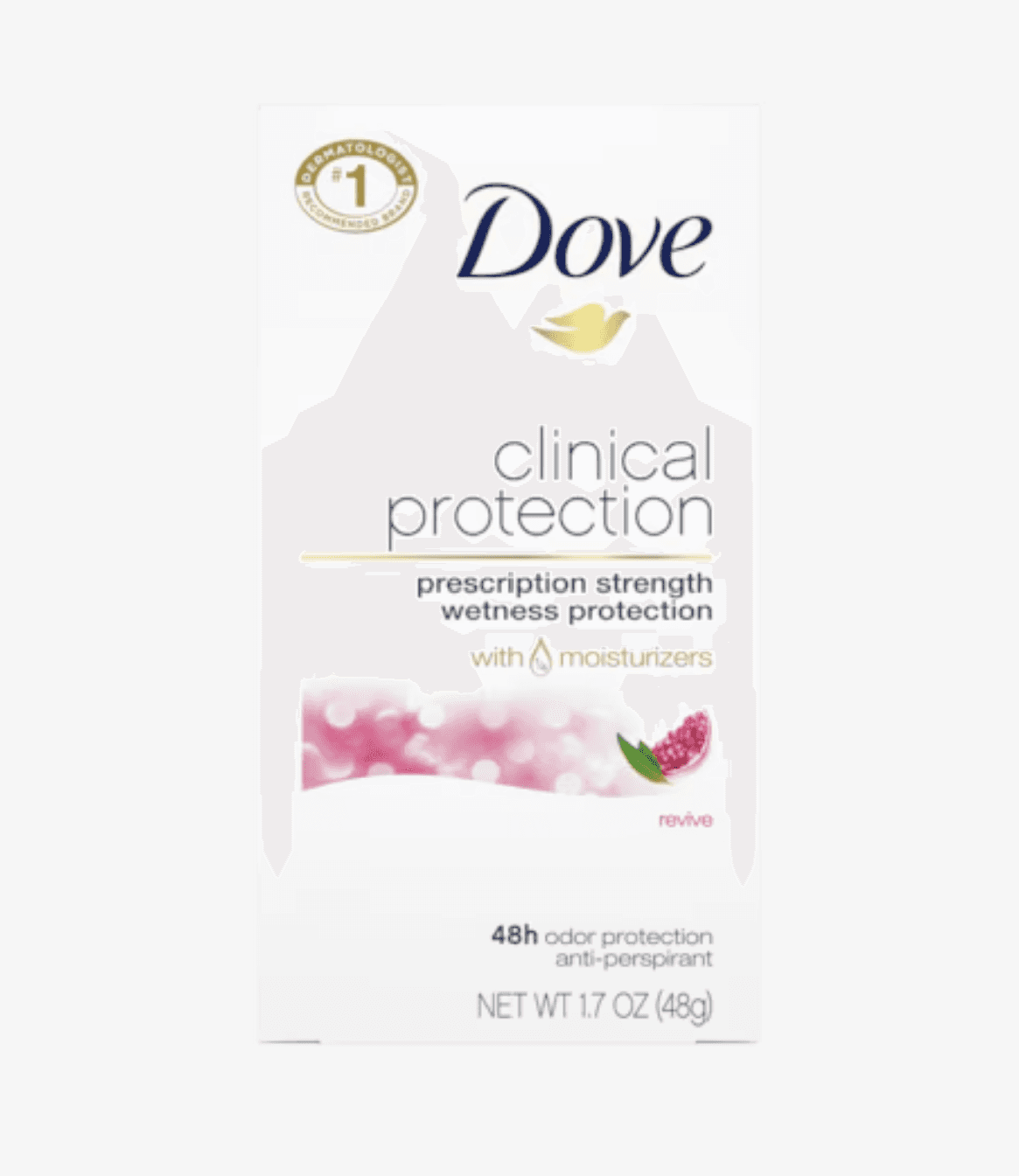
Gillette Clinical Advanced Solid
Designed to last during physical activity, Gillette Clinical Advanced Solid provides long-lasting protection against excessive underarm sweating (axillary hyperhidrosis) and odor. The product is marketed for men, but of course, anyone can use the deodorant.
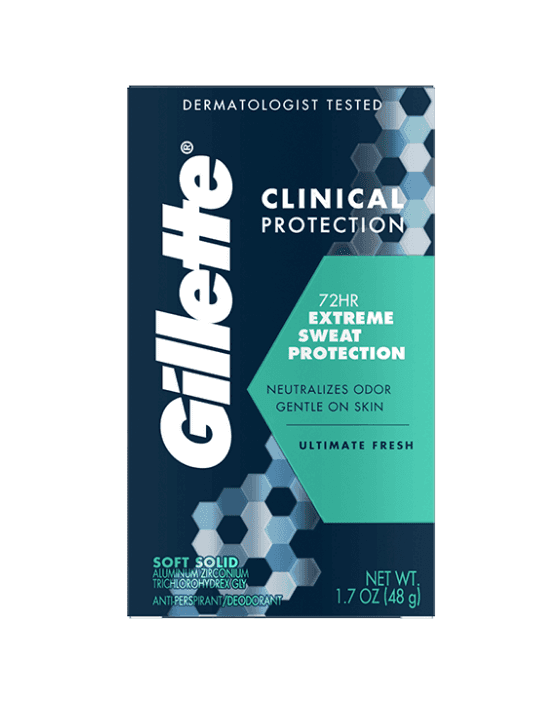
Clinical-Strength Antiperspirants
Certain Dri Prescription Strength
Certain Dri is a top choice for hyperhidrosis due to its high aluminum chloride concentration.
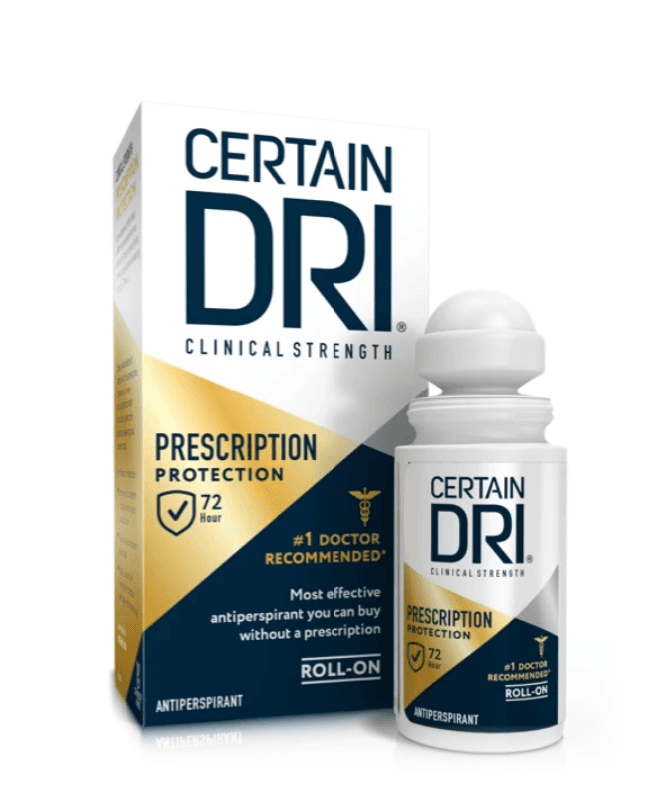
SweatBlock Antiperspirant Wipes
SweatBlock wipes are convenient and effective for reducing sweat all over the body, including underarms, hands, and feet. Results may vary from person to person, but the effects of each application last an average of 6.4 days.
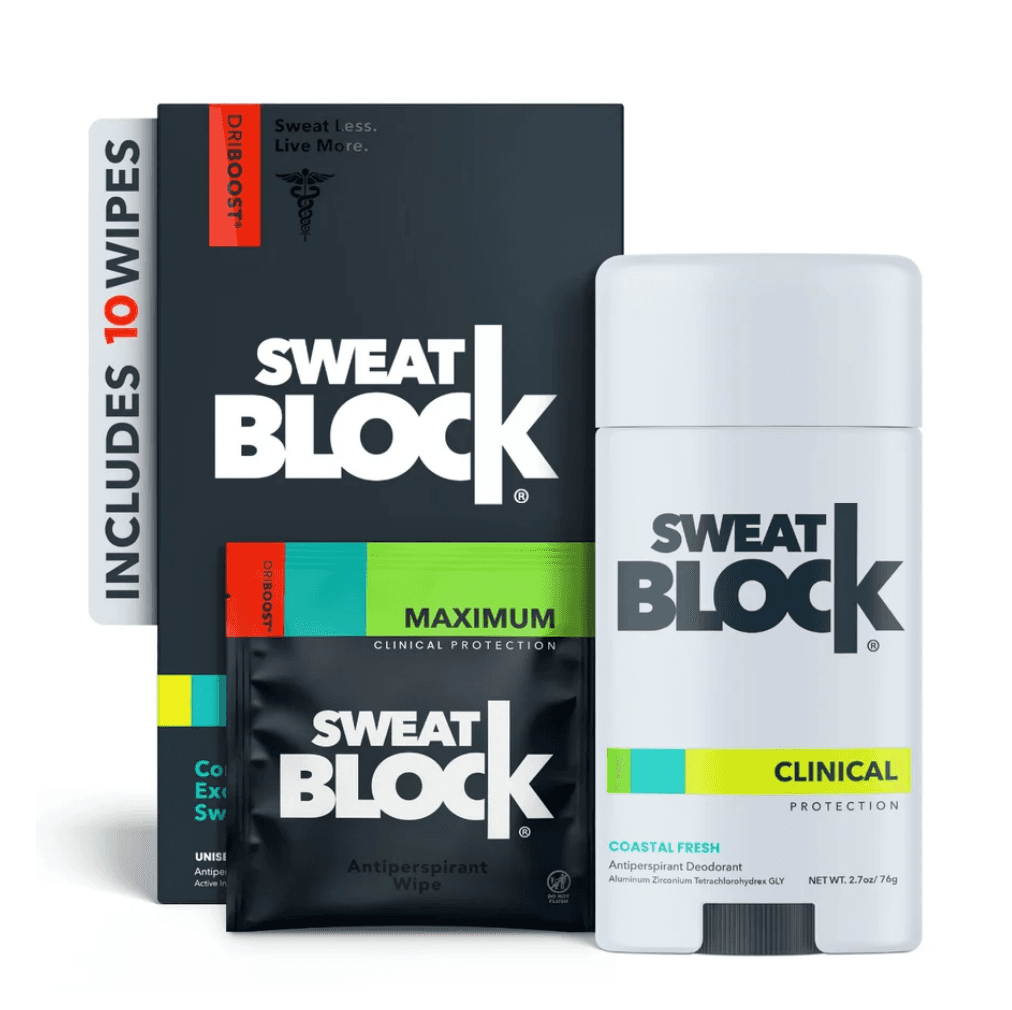
Aluminum-Free Options
Lume
Lume is a multi-purpose, aluminum-free deodorant that neutralizes odor without blocking sweat glands. It’s ideal for individuals with sensitive skin or those seeking a natural alternative.
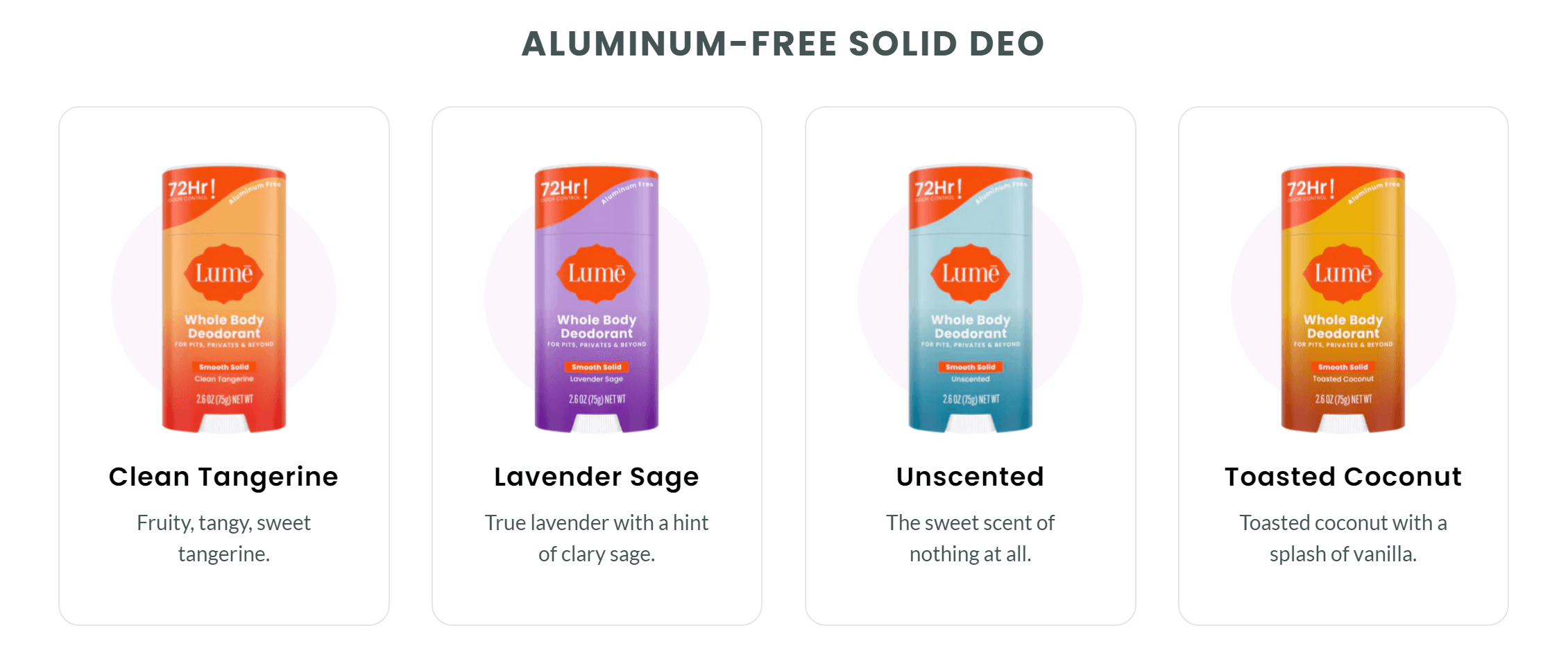
Native Sensitive Deodorant
Native’s Sensitive line offers aluminum-free protection with soothing ingredients like coconut oil and shea butter. It’s a great option for odor control with minimal irritation.
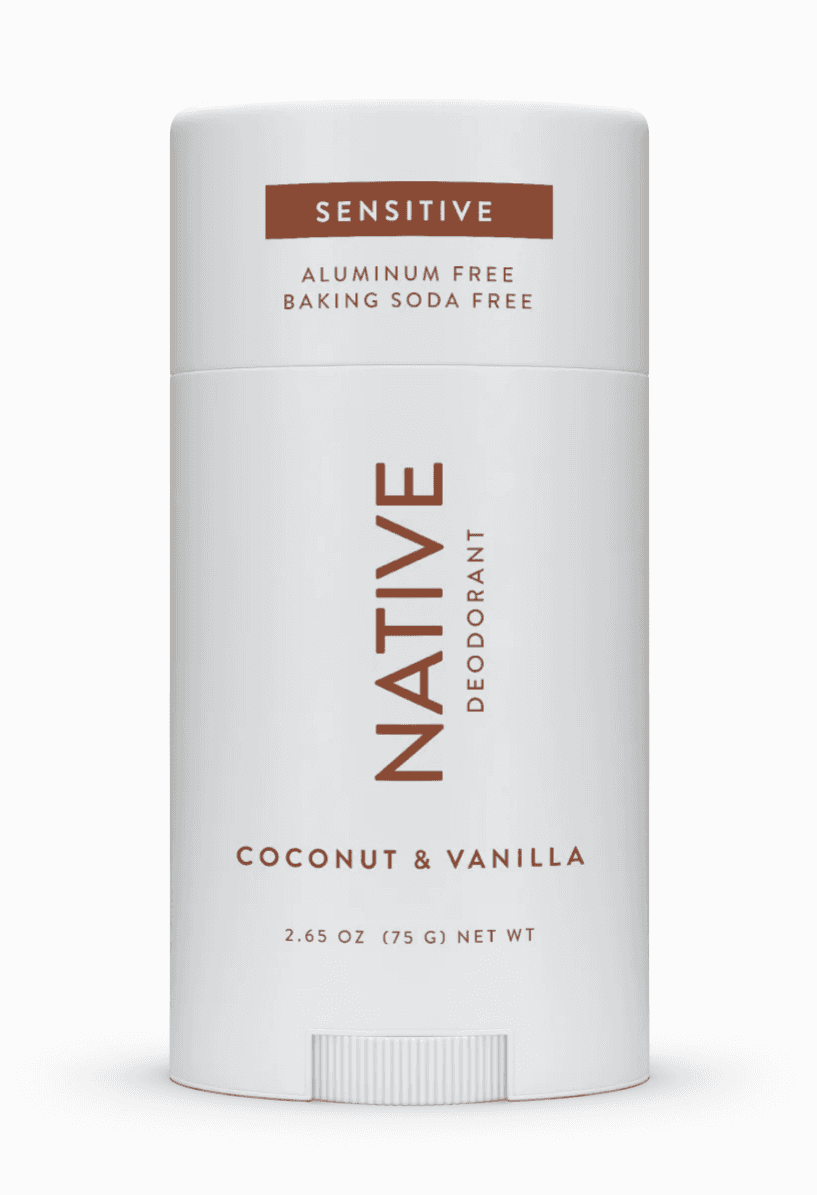
Klima Hyperdri Aluminum-Free Antiperspirant
Klima Hyperdri is an aluminum-free product with some sweat-reducing properties for those seeking a balance between natural ingredients and sweat control.
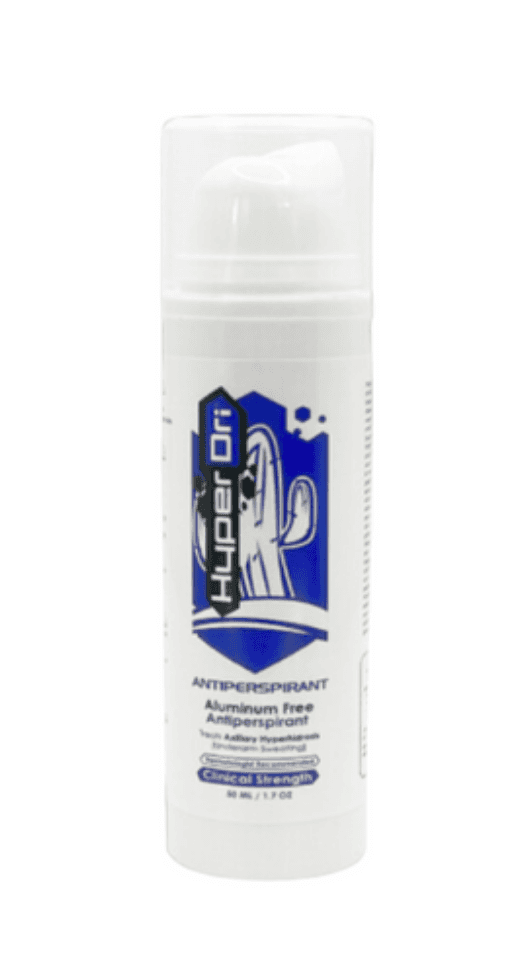
Specialty Products
Carpe
Carpe products are specifically formulated for sweaty hands, feet, and underarms. It's a quick-drying and mattifying lotion that absorbs sweat.
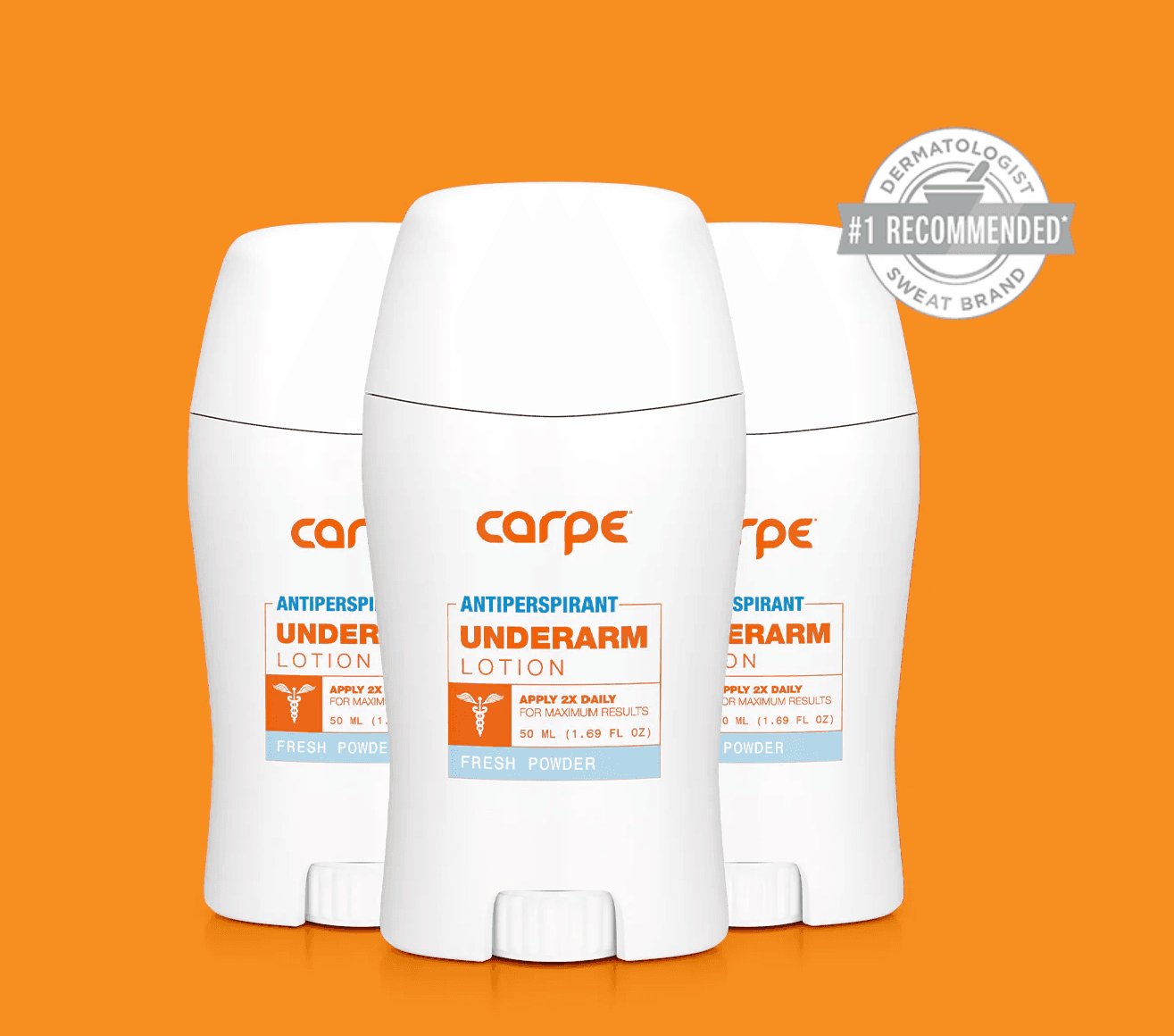
Duradry
Duradry offers a comprehensive approach to sweat management with its 3-step system: a wash, antiperspirant gel, and deodorant stick (although you can also purchase the products à la carte). It’s designed for severe sweating and delivers long-lasting results.
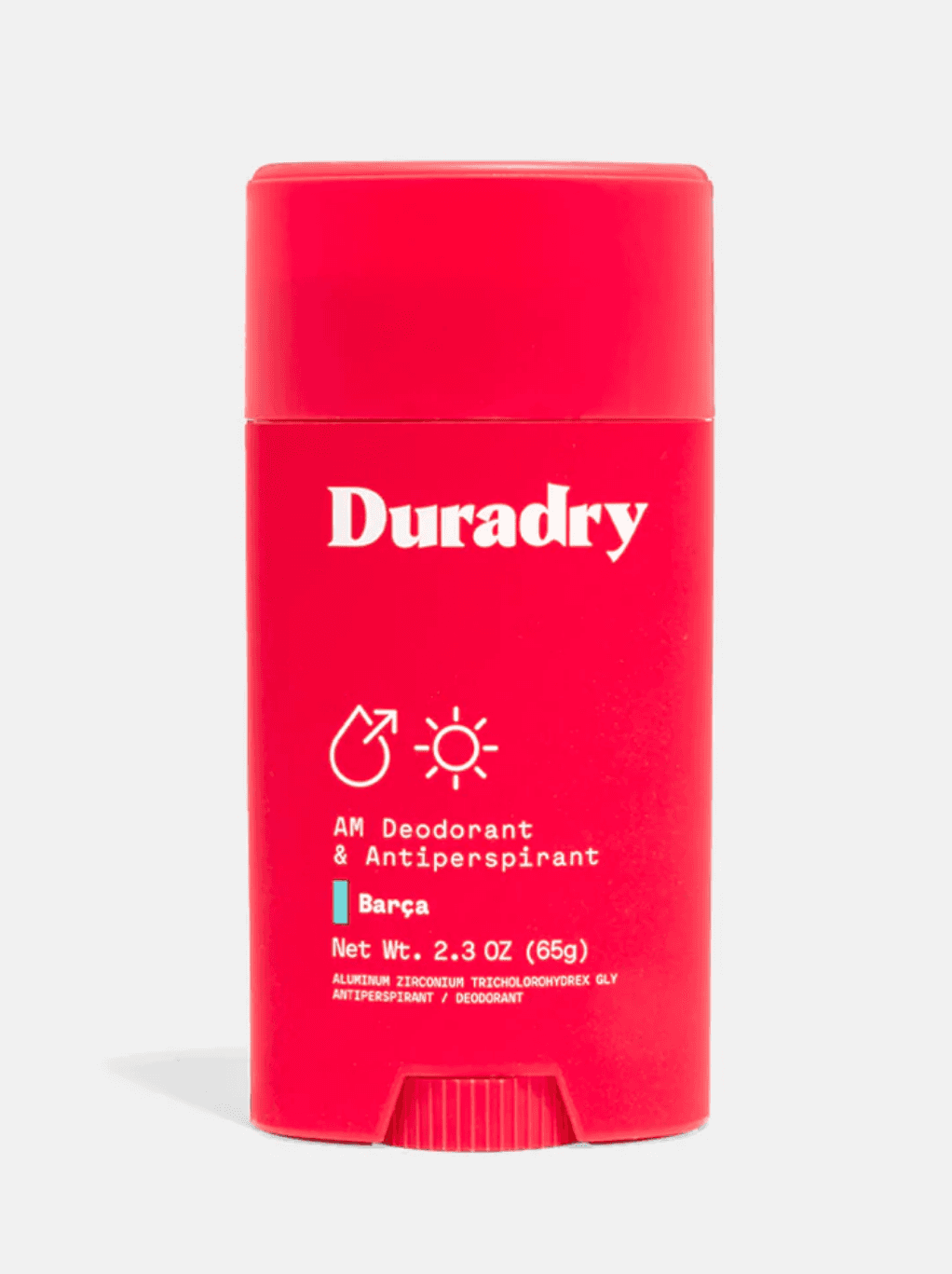
ZeroSweat Antiperspirant
ZeroSweat is a clinical-strength antiperspirant that provides up to seven days of sweat protection per application. It’s designed for underarm use but can be effective on other areas prone to sweating.
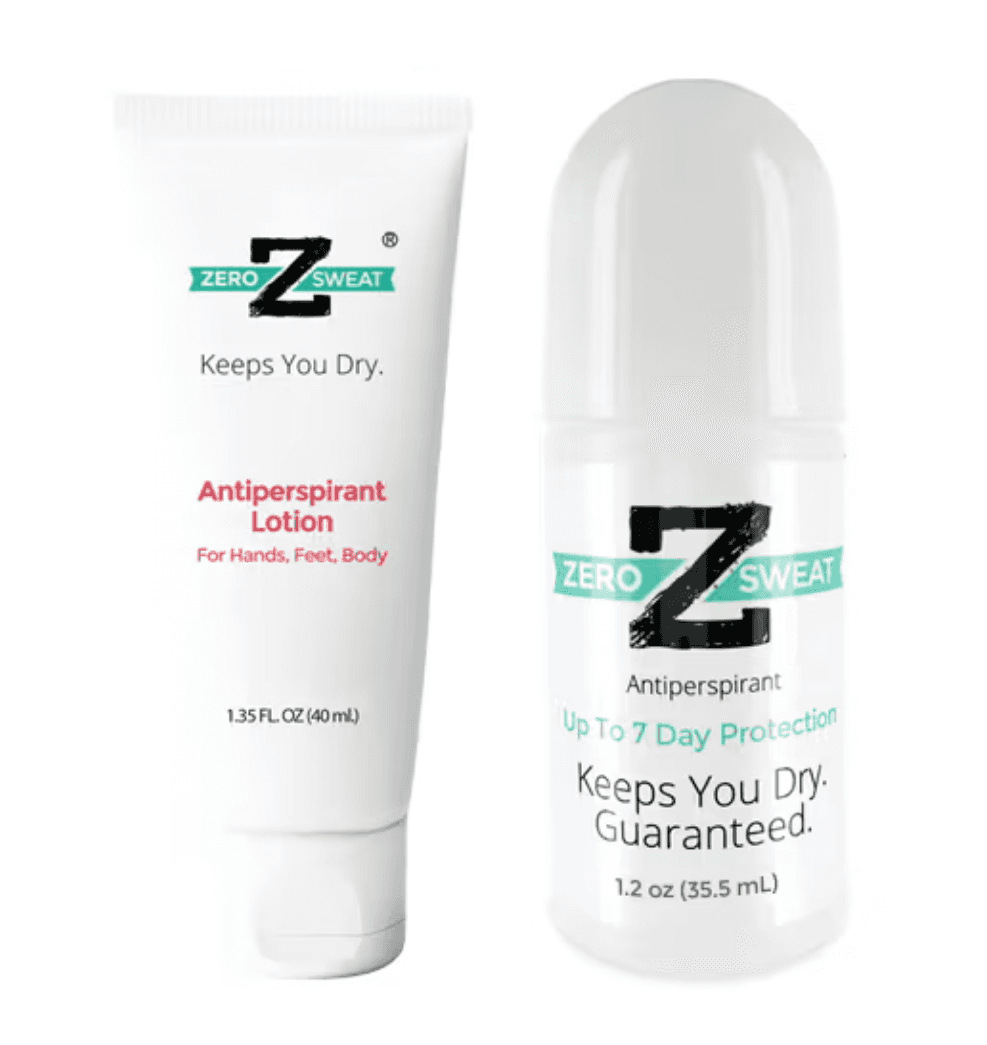
Tips to Use Deodorants for Maximum Effectiveness
Even the highest quality products need to be applied correctly for best results. Here’s how to get the most out of your antiperspirants and deodorants.
Apply Products at Night
Your sweat glands are less active at night. So, for maximum absorption, apply your antiperspirants in the evening before bed. This allows the product to form a plug in the sweat glands before you start sweating the next day.
Apply Products to Clean, Dry Skin
Moisture from sweat and daily build-up can dilute your products and make them less effective. Before applying, make sure your skin is clean and completely dry to get the most out of your antiperspirant and deodorant.
Managing Side Effects
There are several ingredients commonly found in deodorants and antiperspirants that can cause irritation, dry skin, or an allergic reaction, including:
Fragrances
Dyes
Aluminum
Preservatives
Alcohol
If you’re starting a new product, try a patch test on a small area of skin to ensure you don’t have a reaction before applying the product to a larger area. If you’re prone to skin irritation, look for products that are specifically designed for sensitive skin. While itching and redness from deodorant and antiperspirant is normal and typically not an emergency, see a healthcare provider if irritation persists.
Alternatives to Deodorants for Hyperhidrosis
If deodorants and antiperspirants aren’t enough to manage excessive sweating (and for many folks with hyperhidrosis, they’re not), consider combining those products with safe and effective medical treatments:
Glycopyrrolate: Glycopyrrolate, like other anticholinergics, is a medication that reduces sweating by blocking the chemical signals that trigger the sweat glands. It can be applied topically for focal hyperhidrosis (excessive sweating of one or more areas of the body) or taken orally for hyperhidrosis that affects the whole body.
Botox: Botox injections temporarily block nerve signals that trigger the sweat glands, providing long-lasting results with maintenance treatments required(every 4-12 months).
Iontophoresis: Iontophoresis is commonly used to treat sweaty feet and hands. It works by placing the hands and/or feet in water and sending electrical currents through the water to reduce sweating.
miraDry: miraDry is a medical device that uses microwave technology on the underarms to reduce sweating.
Surgery: Endoscopic thoracic sympathectomy (ETS) works by clamping or cutting the nerves that trigger sweat glands. Surgery is never without risk and should only be considered as a last resort for severe cases of hyperhidrosis.
FAQs About the Best Deodorants for Hyperhidrosis
What makes a deodorant effective for hyperhidrosis?
The best deodorants and antiperspirants for hyperhidrosis contain a high concentration of aluminum chloride (or another active ingredient) to temporarily plug sweat ducts in the sweat glands and block the release of sweat.
Are natural deodorants helpful for excessive sweating?
Natural deodorants won’t eliminate sweat for people with hyperhidrosis. However, they may help mask body odor in people with sensitive skin and/or mild cases of hyperhidrosis.
Can I use clinical-strength antiperspirants daily?
Most people can safely use clinical-strength antiperspirants daily, but some may experience irritation with frequent use. For sensitive skin, try applying it every other day or as directed on the product label. Use clinical-strength antiperspirants as recommended by the manufacturer and ask your healthcare provider if you have any concerns.
What should I do if deodorants don’t work for me?
If over-the-counter and clinical-strength products don’t provide enough relief, it’s time to consult a healthcare provider. They can recommend prescription treatments, such as prescription antiperspirants, oral medications, or advanced options like Botox, iontophoresis, or even surgery for severe cases of hyperhidrosis.
Final Thoughts
Finding the right deodorant and antiperspirant for managing excessive sweating may be a process of trial and error. Remember to look for high aluminum chloride content (if you don’t have sensitive skin), long-lasting formulas, and clinical strength options. In addition to quality products designed to reduce sweating and odor, there are many safe and effective treatment options available to you for managing hyperhidrosis.

